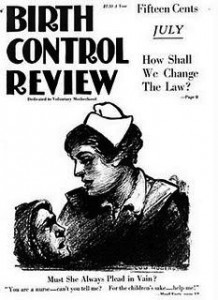Hello, boys and girls! The following informative presentation is brought to you by the fine people at Trojan! But not really. (Actually, sneaking into enemy territory with a present secretly full of ravaging warriors really doesn’t seem like the best image for a condom company.)
Ahem. Anyway.

You may have noticed a wonderful new television show gracing our airwaves lately. It’s a wild and raucous event chock-a-block full of new ideas and plotlines more twisted than the tornado that flew Dorothy to Oz. It’s full of these strange creatures called “GOPs.” However, I’m starting to think they might actually be plants, as they don’t really do very much but sit there and get fed, and I hear some of them are eventually supposed to turn into “candy-dates.”
Horrible puns and general cynicism aside, the Republican Primary debates have managed to bring a few key issues to light. And when an idea gets thrust into the spotlight, controversy often circles like a vulture, eventually sinking its talons in and tearing it apart.
This particular tale of trial and tribulation began with the onset of “Obamacare,” otherwise known as the Affordable Care Act, in August 2011. As most of you are still legally “dependents” of your parents, it might be difficult to see how the act could apply directly to you, the (presumably) healthy Gustavus student. While the fact that you can now stay on your parents’ health insurance plan until you’re twenty-six is certainly something to get excited about, it may not quite generate the same excitement as a more controversial component of the Affordable Care Act: the elimination of out-of-pocket costs for birth control.
Now, don’t worry! Birth control is a very vague term indeed, so just hang tight and I’ll clarify: anything that is FDA-approved for the purpose of preventing pregnancy, from condoms and diaphragms to IUDs and the Pill, even sterilization, is covered by this law. Plan B, a.k.a. “the morning-after pill,” is also covered, though the law is clear in stating that any form of “abortion pill” (which actually interrupts a pregnancy as opposed to simply preventing it) will not be covered. Keep in mind that this law is not just talking about government-sponsored healthcare; this rule applies to all insurance providers, public and private.
As I’m sure Hamlet would say if he were to follow twenty-first century American politics: “Ay, there’s the rub.”
See, insurance typically comes from employers. And there’s this one group of employers that view birth control as … not so morally okay. Spoiler alert: they have a Pope, and it’s not Alexander.
Not to say that all practicing Catholics are anti-birth control. But the official stance of the church is—well, let’s just say if your rhythm’s off, you’re gonna have a lot of kids.
Thing is, the Catholic Church employs a lot of people that don’t necessarily share their views. There are Catholic hospitals, Catholic universities and hundreds of Catholic not-for-profit charities that wouldn’t be operational were it not for their non-religiously-screened labor force. Does the Catholic Church have the right to tell agnostic nurse Sally of Saint Joseph’s General that she has to pay eighty dollars a month out of pocket for birth control because they won’t spring for a secular insurance plan?
Our President says no. While institutions can apply for religion-exempt status from this law, they have to be almost completely staffed with believers of the objecting religion. In other words, Catholic monastery employing nuns: exempt. Catholic university employing and enrolling based on merit, not faith: not exempt.
Birth control isn’t just used for pregnancy prevention. Some women go on it for the perks of clearer skin, fewer cramps and the significantly reduced risk for ovarian cancer. As far as I’m aware, the church doesn’t condemn any of these things. Otherwise we’d be seeing mass boycotts of Midol and Neutrogena.
Ultimately, birth control is a choice. If you find that hormonal or physical pregnancy prevention is against your moral and/or religious beliefs, you have every right not to use it. But does a religious institution have the right to tell the government it won’t be providing a more flexible insurance option to its secular employees? Only time will tell.
This blog is nice and amazing. I love your post! It’s also nice to see someone who does a lot of research and has a great knack for ting, which is pretty rare from bloggers these days.
Thanks!
Nursing license
“a great knack for ting”
i don’t know what that could be.
Also, you have some spam to get rid of or prevent.
Thanks for reading!
The actual Honua Kai Resort & Health spa is the rtapicular #1 holiday resort about N . Boasts along with the #2 holiday resort its Boasts : simply at the rear of several Months within Southern Maui that may cost you four times all the for you to hire and it is 1 / 3 the size and style. The Honua Kai may be the most recent holiday resort on Maui and it is 35 decades modern compared to any vacation resort upon Northern Boasts. The Honua Kai is a condo-hotel each property is actually privately operated then when the property owner is just not presently there the rtapicular rental property is placed into the hire pool area. Out of all the accommodations on Boasts the Honua Kai is often a accurate residence that is certainly 5-star as well as on Ka’anapali Beach front which is the #1 seaside within Offers. There is often a website that adopts fantastic detail regarding the Honua Kai *